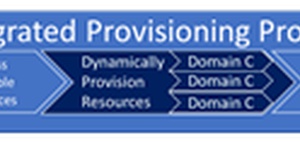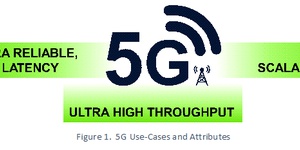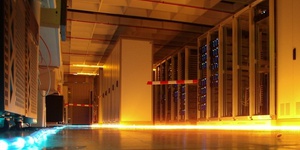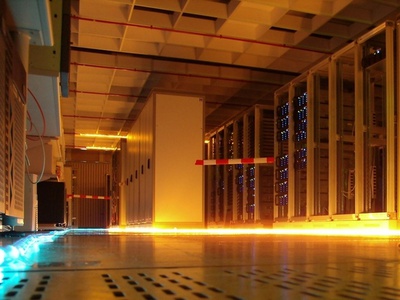
Whitepapers
JUNIPER NETWORKS QFABRIC: SCALING FOR THE MODERN DATA CENTER
Data center traffic scale and volatility are growing in response to these data center changes. Traffic flow patterns are changing as well. In addition to the traditional flow of traffic from servers to the data center core (N-S), it also flows from server to server and from server to storage (E-W) in the modern data center. Consequently, data center network infrastructures must support ever increasing scale and any-to-any connectivity. QFabric meets the needs of the modern data center by simplifying network operations, reducing network latency and congestion, seamlessly integrating with existing network infrastructure.
Data center traffic scale and volatility are growing in response to these data center changes. Traffic flow patterns are changing as well. In addition to the traditional flow of traffic from servers to the data center core (N-S), it also flows from server to server and from server to storage (E-W) in the modern data center. Consequently, data center network infrastructures must support ever increasing scale and any-to-any connectivity.
QFabric meets the needs of the modern data center by simplifying network operations, reducing network latency and congestion, seamlessly integrating with existing network infrastructure and services, and delivering scale without adding cost and complexity.
For more information about ACG Research's business case analysis service, click here or contact sales@acgcc.com.
You might like similar whitepapers


INTRODUCING xHAUL REWRITING THE PLAYBOOK FOR TRANSPORT NETWORKING IN THE RAN IN 5G

Always On, Active Analytics and AI for Superior Performance in Digitally Powered Enterprises

The Evolution of Broadband Traffic: A Forecast for the Americas, EMEA, and APAC Regions

Hybrid Networks: Integrated Provisioning for Virtual and Physical Networks

The TCO Benefits of Dell’s Next-Generation Telco Servers

Nuage/ALU on the VNS Solution in an SP Context

5G Service Assurance: The Case for AIOps

Delivering Policy Continuity at Scale in Cloud IT and Managed Network Services

Using Open Virtual RANs in 5G

Next-Generation Cloud Metro Network Requirements and Architectures

Accelerating Revenue and Innovation in CSPs' Distributed Clouds

The Missing Guide in SP Managed Services Profitability

An Approach to Offering Profitable Managed Network Services

The Economic Benefits of Virtual Edge Services

Middle-Mile Networks Capacity Requirements for Fixed Broadband

Comparing Broadband Network Architectures in the Evolving Connectivity Landscape

Building the Business Case for AI in Wireless Networks: Juniper Mist AI TCO Report

Maximizing Efficiency Using Standards-Based, Model-Driven Infrastructures in NFV Deployments

5G Service Assurance: The Case for AIOps

The Economic Benefits of a Super-Converged Multi-Access Edge Network

THE POWER OF DIFFERENTIATION: BUILDING BROADBAND FOR 2021 AND BEYOND

The Economic Benefits of Juniper Apstra and CN2 in a Modern 5G Network

ECONOMIC BENEFITS OF THE VMWARE TELCO CLOUD AUTOMATION AND HORIZONTAL INFRASTRUCTURE

TCO Benefits of Converged 5G Ready IP Transport

Key CommSoft Learnings from #MWC19

Huawei Autonomous Driving Network: Standards-Based but Differentiated

AUTONOMOUS NETWORKS: NOW IS THE TIME

Building Open, Scalable Service Delivery Infrastructures

Understanding VRAN

A TCO Comparison of Private WANs vs Managed Network Services for Enterprises

Mitigating Market Challenges in Telecommunications

Meet Market Needs with Software-Enabled Solutions

Segment Routing: An ACG Research Whitepaper

Global Pricing for SD-WAN

MODERNIZING THE CABLE SERVICE DELIVERY INFRASTRUCTURE

THE BUSINESS CASE FOR ADAPTIVE IP

Lenovo: Data Center Switch Solutions for Enterprise Data Centers

Coriant Groove™ G30 Disaggregated Platform Update: Market Impact Report

The Driving Factors behind the Telecommunications Shift to Cloud Metro Networks

Orchestrating Dynamic Enterprise Services

Broadband Access Transformation

Coriant’s Multi-Sided Platform Partner Program: Market Impact Report

Tunnel-Based versus Tunnel-Free SD-WAN







